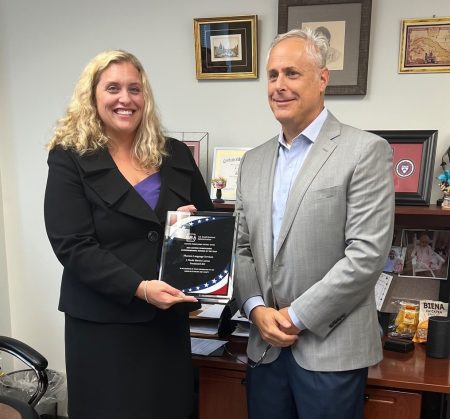By Kimberly Palmer | NerdWallet
Financial stress is very common, according to certified financial planner Katie Lindquist. She says nearly all her clients express feeling it.
“They are unsure what to do with their money and feel like they should have the knowledge. They feel ashamed about their money habits, which causes a lot of stress,” Lindquist explains.
To ease that pressure, Lindquist assists them in getting organized and taking stock of their financial accounts and investments. goals. “People with financial plans experience a lot less stress because they know their current situation and where they want to be,” Lindquist, based in Madison, Wisconsin, explains.
To deal with overwhelming financial stress, experts advise taking these steps:
Recognize that feeling
Understanding how common financial stress is can help individuals realize that feeling it doesn't mean something is wrong with them, says Bari Tessler, author of “The Art of Money” and a financial therapist in Boulder, Colorado.
“Increased financial anxiety is influenced by interest rates, inflation, job challenges, unexpected life events and world events,” Tessler explains. These stressors affect almost everyone. They can cause people to either ignore their finances or obsessively check them, neither of which is helpful.
Pay attention to your body
At times, your body may indicate financial stress first. Sonya Lutter, director of financial health and wellness at the School of Financial Planning at Texas Tech University, mentions that when people are under financial stress, their fingers often get cold due to the fight-or-flight response affecting blood flow.
“You can train yourself to notice when you are physiologically stressed,” Lutter notes. Then, you can refrain from making major financial decisions until you are calmer. Otherwise, she says, the fight-or-flight response “leaves us making very shortsighted decisions. You simply want to get through the present, and you definitely don't think about 10 years from now, which is detrimental for financial decision-making.”
Lutter adds that if you're making money choices with a partner, you can assess if you're both in the right mindset by first holding hands to check body temperatures and stress levels. You might decide to address the topic later when you're both more relaxed.
Identify your triggers
Sometimes, Adverse experiences related to money in childhood can lead to a high-stress reaction whenever the subject arises in adulthood, explains Jannese Torres, author of the upcoming book “Financially Lit!” and host of the podcast “Yo Quiero Dinero.” Negotiating for a salary or haggling at the car dealership might trigger an emotional meltdown, Torres elaborates. She suggests that exploring these early life experiences can help individuals learn to navigate financial conversations rather than avoid them.
“The more you recognize what triggers you, the easier it becomes to look objectively at your finances and realize you can handle it,” she adds.
Find ways to reset
Tessler proposes slowing down your mind before making a significant decision, which could involve activities like hiking, meditation, showering, or listening to music. At times, grabbing a snack, going outside, or relaxing your shoulders can help reset your mind, she explains.
"I would simply take a deep breath. No one needs to know. Walk away and evaluate the situation," Lutter says.
"It's fine to take a break and revisit" the decision later, she adds.
Begin the process of gaining control again
Because stress can make us stall when facing financial decisions, Stacy Dervin, founder of Tailored Financial Planning in Eugene, Oregon, suggests addressing one thing at a time. "Trying to solve everything at once can be very overwhelming. Just concentrate on the next right thing to help boost your confidence," she says.
Lindquist says creating a
spreadsheet to enumerate all of your accounts , logging in to a workplace retirement savings plan, tracking spending or making a net worth statement to examine assets and liabilities are all excellent methods to regain a sense of control over your finances.Sara Zuckerman, a CFP in Scottsdale, Arizona, and founder of Reset Financial Planning, says focusing on organizing your finances can bring you back to your own goals instead of comparing yourself to others, which can worsen stress.
"To really comprehend what you have and where it's going is the biggest step toward establishing that initial feeling of control," Zuckerman says.
This article was written by NerdWallet and was initially published by The Associated Press.
More From NerdWallet
How to Ask for a Raise in an Uncertain Economy
The article originally appeared on Recognizing that money tension is common can be the first step toward reducing it. NerdWallet.









